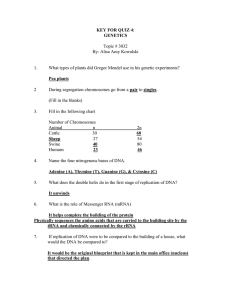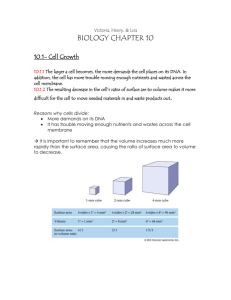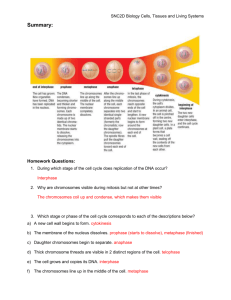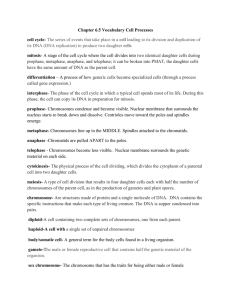Chapter 6.5 Vocabulary Cell Processes
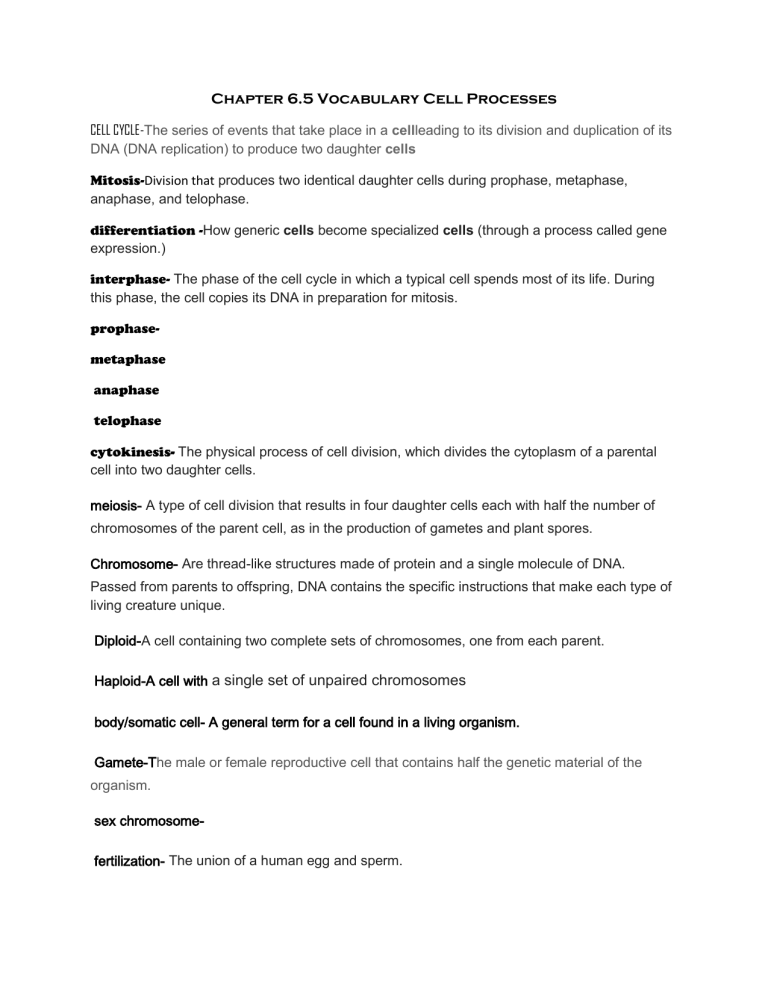
Chapter 6.5 Vocabulary Cell Processes
CELL CYCLE-
The series of events that take place in a cell leading to its division and duplication of its
DNA (DNA replication) to produce two daughter cells
MitosisDivision that produces two identical daughter cells during prophase, metaphase, anaphase, and telophase. differentiation How generic cells become specialized cells (through a process called gene expression.) interphase-
The phase of the cell cycle in which a typical cell spends most of its life. During this phase, the cell copies its DNA in preparation for mitosis.
prophase- metaphase
anaphase
telophase cytokinesis- The physical process of cell division, which divides the cytoplasm of a parental cell into two daughter cells.
meiosis-
A type of cell division that results in four daughter cells each with half the number of chromosomes of the parent cell, as in the production of gametes and plant spores.
Chromosome-
Are thread-like structures made of protein and a single molecule of DNA.
Passed from parents to offspring, DNA contains the specific instructions that make each type of living creature unique.
Diploid-
A cell containing two complete sets of chromosomes, one from each parent.
Haploid-A cell with
a single set of unpaired chromosomes
body/somatic cell- A general term for a cell found in a living organism.
Gamete-T he male or female reproductive cell that contains half the genetic material of the organism.
sex chromosome-
fertilization-
The union of a human egg and sperm.
sexual reproduction-
asexual reproduction
zygote
DNA replication
*protein synthesis
*translation
*transcription
*codon amino acid nucleotide ribosome
*anticodon
Genetics
Genotype
Phenotype
Dominant
Recessive
Homozygous
Heterozygous
Punnet square
Allele
